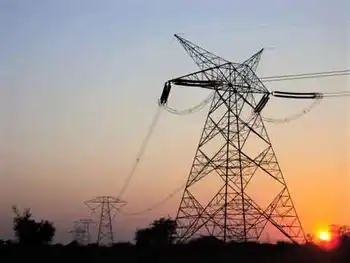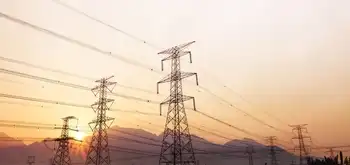Gas-fired power plant fuels controversy
By Globe and Mail
Protective Relay Training - Basic
Our customized live online or in‑person group training can be delivered to your staff at your location.

- Live Online
- 12 hours Instructor-led
- Group Training Available
Sources in the energy sector said former energy minister Gerry Phillips was uncomfortable with a plan by the government to skip the competitive process and award the contract to one company. Mr. Phillips said that without competitive bids, the government could run the risk of not getting the best deal for electricity consumers, the sources said.
He made his concerns known to ministry staff and industry officials before he stepped down as energy minister on June 20 to become minister without portfolio, the sources said. Mr. Phillips, 67, had approached Premier Dalton McGuinty last March about having his workload reduced.
"The matter had zero influence on his decision in March to approach the Premier about a move down the road," said Alan Findlay, Mr. Phillips's former press secretary.
Mr. Phillips had initially set a deadline of June 30 for making a decision on the coal plant. But Amy Tang, a spokeswoman for George Smitherman, the former health minister who is now heading a new superministry responsible for energy and infrastructure projects, said the deadline could not be met because of the cabinet shuffle. Mr. Smitherman is meeting with officials to discuss the project, she said.
The sources said officials in the Premier's office are considering awarding the contract to Sithe Global Power LLC to build a gas plant that would supply 800 megawatts of electricity to households and businesses in Mississauga. The New York-based company owns power-plant projects in North America, Europe and the Middle East and is building an 875-megawatt, natural gas-fired plant in Brampton, northwest of Toronto.
Crown-owned Ontario Power Generation also wants to build a natural gas plant in Mississauga, along the waterfront where it once operated a coal-fired plant.
But Mississauga council has opposed OPG's proposal and instead unanimously endorsed a plan to transform the 200-hectare site into a waterfront community.
OPG officials have argued that the sprawling Lakeview lands could house both a gas plant and a thriving waterfront community. Councillor Carolyn Parrish disagrees.
"That's like trying to hide an elephant in a room under a blanket," she said in an interview. "We don't want a gas plant there."
Virtually every energy project the Ontario government embarks on ends up mired in controversy. New Democratic Party MPP Peter Tabuns criticized the government for using nuclear power and gas to meet the province's electricity needs rather than conservation and renewable sources of electricity.
"They are locking us into high-cost options that are not the most cost effective or the most environmentally beneficial," Mr. Tabuns said in an interview. "I think it is a huge mistake."
With the proposed Mississauga project, the government runs the risk of leaving electricity consumers ultimately paying higher prices if it does not strike the best deal for building the gas plant, the sources said. They said Mr. Phillips was uncomfortable about awarding a second contract to Sithe Global.
"Competition gets people to sharpen pencils," one of the sources said. "(Mr. Phillips) expressed that view within the (Energy) ministry."
If Sithe Global gets the nod, it will have a head start over others, including OPG. The company has spent $20-million preparing a site called Southdown in an industrial area in south Mississauga.
It can begin construction on the plant as soon as long-term contracts to sell electricity are signed, Duane Cramer, the company's vice-president of development, said in a telephone interview.
"We've been essentially marking time, waiting for the power sale opportunity," he said.
But he acknowledged that there will be questions if the government simply awards his company the contract without seeking competitive bids.
"Clearly, anything short of a competitive process is going to be something they're going to have to justify," he said.











